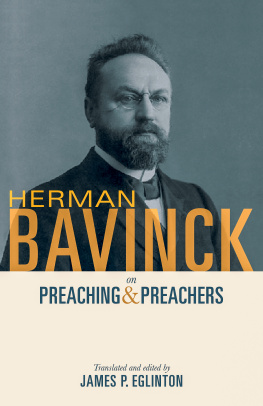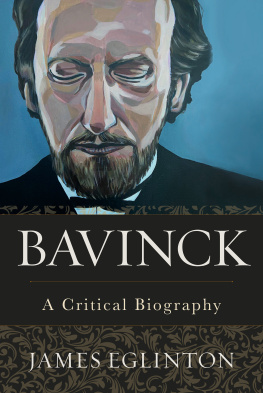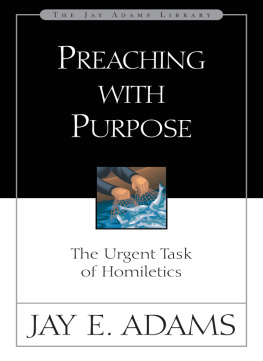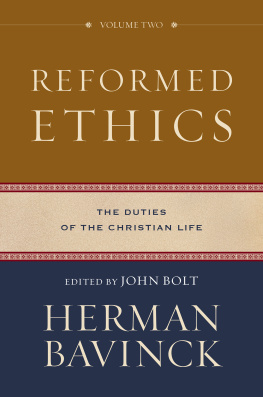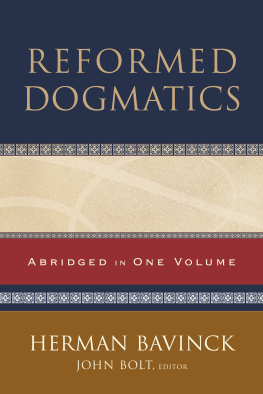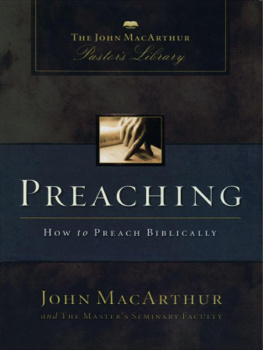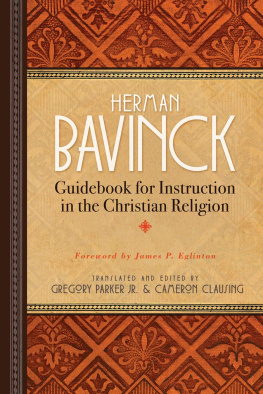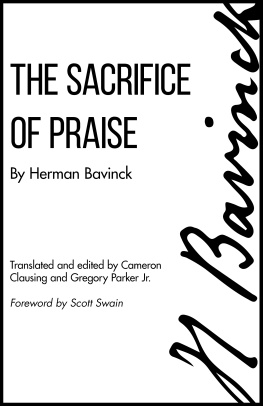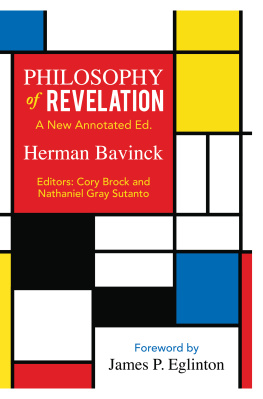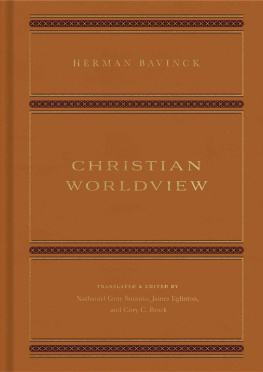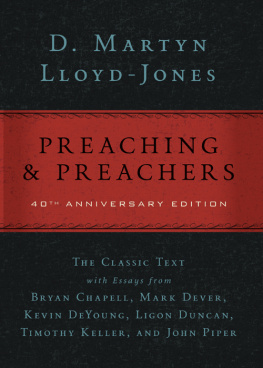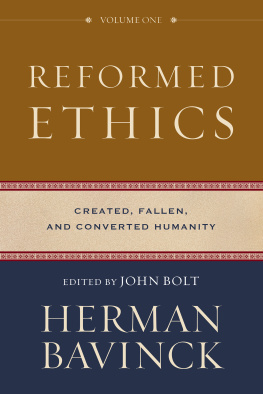I am grateful to a number of friends, colleagues, and students for their help in finishing this book. Sander Klaasse (PhD student, University of Edinburgh) was generous in giving up much time to check my translation of Eloquence. Marinus de Jong (PhD student, Theologische Universiteit Kampen) also provided help in clarifying the meaning of several archaic turns of phrase. Dr. Michael Brutigam (Melbourne School of Theology) and Bruce Pass (PhD student, University of Edinburgh) have both offered valuable pointers in the translation of Bavincks German quotations. Cory Brock (PhD student, University of Edinburgh) was kind enough to offer feedback on the introductory essay.
Some of the translation work was completed during a stay at Princeton Theological Seminary, which was enabled by the award of an Abraham Kuyper Visiting Scholarship. Accordingly, I express my thanks to the seminarys Abraham Kuyper Center for Public Theology. The project also benefited from the outstanding services of the Historisch Documentatiecentrum at the Vrije Universiteit Amsterdam, where I was able to work on Bavincks unpublished materials. Thanks are also due to Marinus and Wibbina de Jong for their hospitality during that research trip. I am indebted to Greg Parker at Hendrickson Publishers, whose kindness and enthusiasm for the project played a significant role in moving it toward publication.
This book is dedicated to George Harincka mentor, and a friend.
I acknowledge all mistakes and shortcomings as my own.
Dr. James Eglinton
Edinburgh
September 2016
Introduction
In the course of the last decade, Herman Bavincks Reformed Dogmatics has become a standard text in the theological diet of Reformed and evangelical preachers in the Anglophone world. Rigorous in his grounding in Scripture, constant in recourse to the tri-unity of God, and intentionally Christocentric in each dogmatic movement, Bavinck has come to typify how an emerging generation of preachers views the theological task. He is increasingly the theologian to whom they turn in looking for dogmatic formation. In their weekly endeavors, however, those preachers are crafting and delivering sermons, rather than dogmatic treatises. By and large, their task is homiletical. While Bavincks writings on dogmatics might enrich their appreciation of the exegesis of Scripture, historical theology, and critically appreciative engagement with modern theology, the question remains of how exactly this translates into how they prepare and deliver sermons.
This book exists because there is a curious gap between Bavinck the theologian and the preachers who read him in the present day. I describe this gap as curious because Bavinck himself was also a preacher. He preached for the first time in 1878, aged twenty-four, and continued to preach regularly until his death some forty-two years later. However, how Bavinck preached, or what and how he thought about the act of preaching and the person of the preacher, are largely unknown to the preachers who read his ReformedDogmatics today. This is so due to linguistic factors, in that his writings on preaching were previously untranslated, this being coupled with the relative difficulty of accessing those sources for much of the twentieth century.
It is certainly unusual that a preacher like Bavinck would go on to exert such influence on a generation of preachers who themselves are largely unacquainted with him in precisely that capacity. The realization of this immediately prompts intriguing questions: What kind of a preacher was Bavinck? How did he try to form his students as preachers? Neo-Calvinism is often associated with a particular form of sermon content. The redemptive-historical hermeneutics exemplified by Geerhardus Vos provides much neo-Calvinist preaching with a particular way of connecting biblical texts to the gospel of Christ, and is closely linked to the notion of neo-Calvinist preaching. However, the question remains: Is there such a thing as a distinctively neo-Calvinist homiletical method or style of preaching or view of the person of the preacher? What will emerge in the pulpit if the broader theological enterprise found in the Reformed Dogmatics (rather than simply a particular form of biblical hermeneutics) takes root in the study?
In large part, this book has developed in an effort to explore and answer those questions. The first impulse to do so came from the Belgian Dominican theologian Edward Schillebeeckx, whose work For the Sake of the Gospel opens with the following statement: Faith, theology and preaching are difficult to separate, certainly for a theologian. But one can discover what a theologian really thinks from her or his preaching. As such, it stands to reason that a theologians preaching will reveal a great deal about his theology.
This insight cannot be applied to every theologian, as not all theologians are also preachers. However, in the case of someone who is both a theologian and a preacher, as is true of Bavinck, Schillebeeckxs point is useful: engage with Bavinck the preacher, and you will likely acquire a more richly textured grasp of his theology. This assertion may well be striking to many of Bavincks Anglophone readers, insofar as they are the preachers who know him as a theologian. What would happen if they became reacquainted with Bavinck as a fellow preacher? Would it help them more deeply consider their own theological commitments in the light of their preaching, or their preaching in the light of those commitments?
This book tries to encourage engagement with these questions by offering translations of Bavincks key texts on preaching and preachers, and his only published sermon. As well as being an additional resource in the growing corpus of Bavinck texts available in English, it aims to stimulate preachers who read his ReformedDogmatics in their own reflective practice. In Reformed Dogmatics, Bavinck sets out to think Gods thoughts after him. In this books translated offerings, he tries to articulate those thoughts through, and in relation to, the preaching of the word of God.
Herman Bavinck: Biography of a Preacher
Herman Bavinck (18541921) was born on December 13, 1854, as the son of a preacher in the Dutch town of Hoogeveen. His father, Jan Bavinck (18261909), was a Reformed pastor originally from Bentheim, in Lower Saxony. His mother was Gezina Magdalena Bavinck (ne Holland, 18271900). The second of seven children, Herman was born into the theologically conservative, ecclesiastically separatist Christian Reformed Church (

